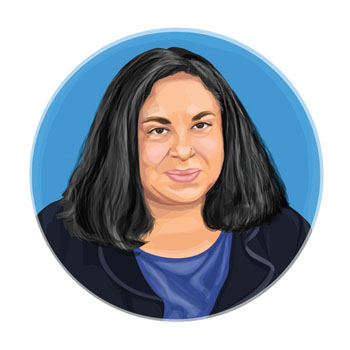
Ilustration by Ellen Marello
The rational, geographically displaced European model of education that we inherited is no longer preparing people for the spaces in which they serve. For many, this model never did. Newer generations, inhabiting a world unlike any other in history, are more awake to the needs of a pluralistic, interconnected, and suffering planet.
How might we co-create spaces of formation that faithfully prepare all of us, teachers and learners alike, to pursue wholeness? As leaders, we can transform siloed institutional life into integrative, collaborative processes that model the communities we hope our students will cultivate – places of healing, belonging, justice, peace, and hope.
This is a lot to ask of our institutions. Their purposes have long been to contain and sustain tradition. Transformation is required. Could we retain what is of value from the past and carry that wisdom into new containers yet to be imagined?
Fixed boundaries become permeable edges of possibility. The affective is valued equally with the intellectual in student formation. Strategic and administrative processes are granted the same attention as the products they are designed to elicit. The curriculum meets the needs of a messy, beautiful world and an increasingly diverse humanity.
We must gather the courage to cull what is useful and leave old wineskins behind.